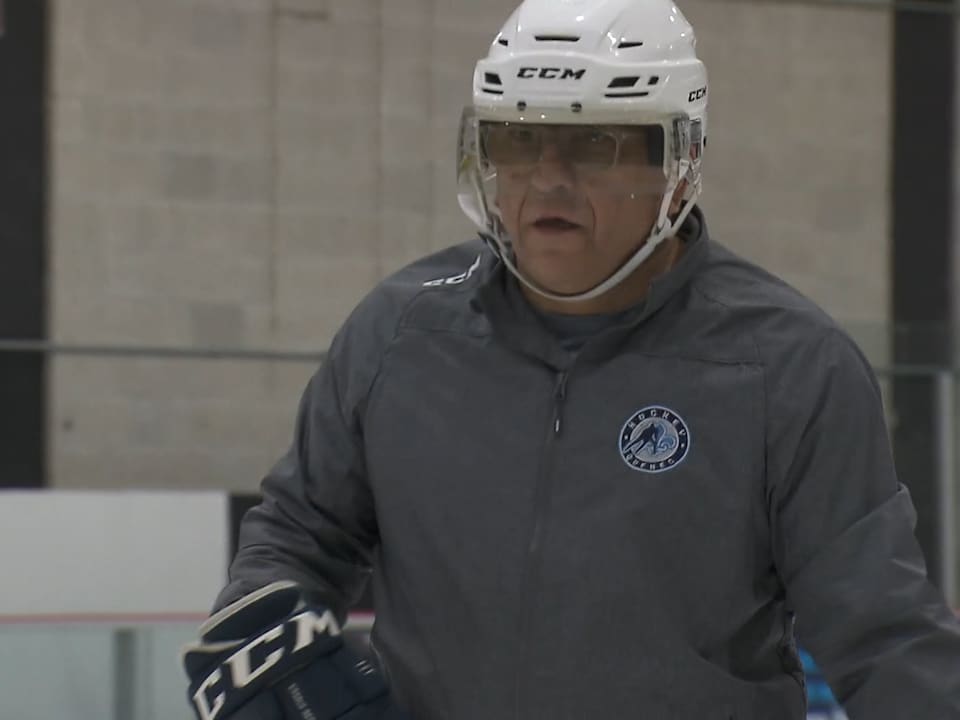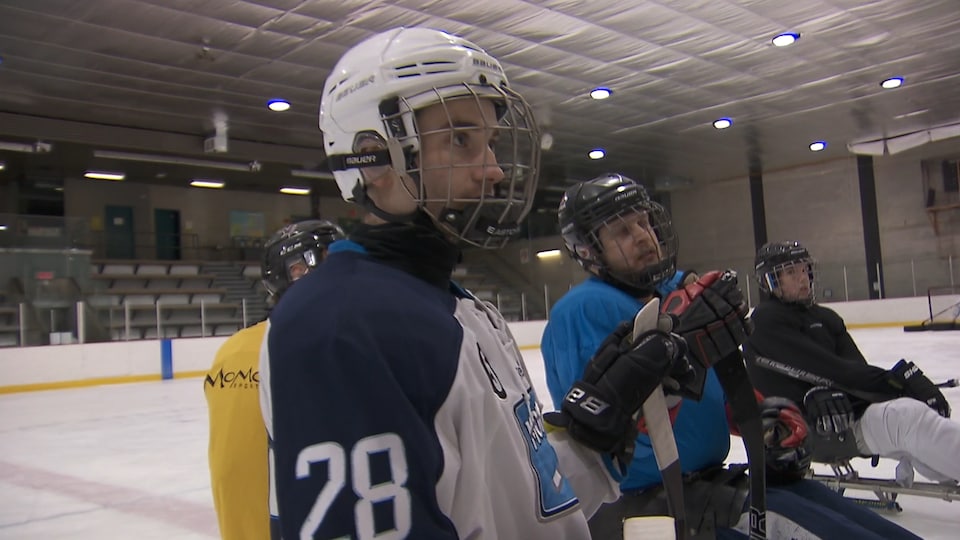Last June, Shawn Burnett lost the use of his legs. In the next few days, he will try to carve out a position in the national for hockey development team.
The 39th Défi sportif, which brings together thousands of athletes living with functional limitations, kicked off on Friday for 10 days of competition. It was another step in the young man’s rapid development, who adopted for hockey in September, just three months after a difficult landing on his first parachute jump.
The wind picked up at the last second. Arriving on dry land did not proceed according to plan. A terrible misfortune caused Burnett to break his spine.
At the age of 18, he was biting life with a full tooth and fueled by adrenaline. He participated in everything – hockey learning sports, water sports, skiing, snowboarding, motocross. He was about to start training to become a firefighter.
Shawn Burnett may have let dark thoughts enter his mind, but he quickly hung on to the sport.
Even when I was playing standing hockey, it was really the competitive aspect and the physical aspect, the reality of dealing with other players, that I liked, Burnett recalls, having met before a practice at the Howie-Morenz arena. , in Montreal. When I learned that para hockey would give me the same feeling, I told myself that I would try it and that I would throw myself into it.
In November, Burnett was selected from the Quebec team. At Défi sportif, he would like to convince the leaders of the national development team and take an invitation for true Team Canada tryouts next September.
His coach, Maxime Gagnon, believes he has a good chance of getting there. Once he saw Burnett on the rink, he noticed his potential for para hockey, a sport where the young defenseman could practice the skills he learned while playing stand-up hockey.
But most of all, the coach is proud to have seen his protégé invest fully in the sport very quickly after his accident.
Often, we say it takes three to five years to rebuild a life, rebuild a network, Maxime Gagnon explains. At that age, you can no longer follow your friends to bars, for example, that are inappropriate. There are stairs, things like that. But Shawn was given something in a hockey locker room. He communicates well with his teammates. Social inclusion is important to us following an accident like this.
” We need to get as fast as possible of the dark thoughts we may have from time to time, thinking that a life is over because we are in a wheelchair. Sport can help them a lot. “
Shawn Burnett quickly interacted with his teammates, a bad beauty gang of men and women living in situations similar or identical to his. The entire Burnett family is still trying to tame this new life that is not easy.
The young athlete lives with the disease 24 hours a day. He had to abandon his career plans. He and his parents had to study again some basic tasks. But all the management of the para hockey team is very important support to them.
At first, the veterans took me under their wing, underlining Burnett. They showed me a lot of things-not just in for hockey, but in life in general, everyday things for living with my disability. They brought me a lot.
Obviously, Shawn Burnett also brings a lot to his team. His coach compared him to national team defender Tyrone Henry, and he thinks his young athlete has a better outlook on the game.
The fact of saying that we will wear his country’s jersey for a camp, it is important, supports Maxime Gagnon. He can afford it. When I send players to a higher level, it’s because I know they can represent us with pride.
And Shawn Burnett, though he’s noticeably humble, has big ideas for the future. He wants to show those younger than him that there is no limit, regardless of their disability.
I really want to push myself, to be the best in everything I do, he admits as modestly as possible. My goal is to really get into the Paralympic Games in the coming years.
With all he has done in less than a year, who will bet against him?
Source: Radio-Canada

